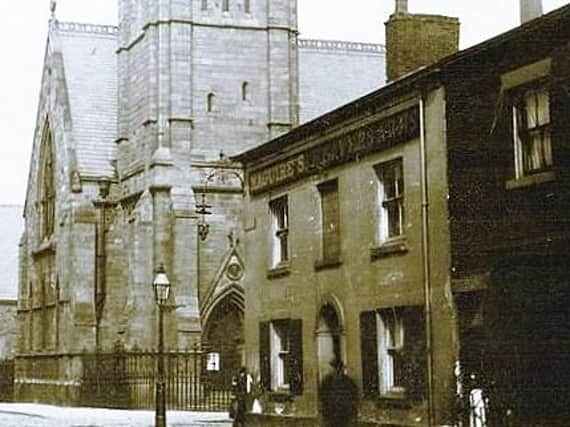Window-smashing drunk from Preston a familiar face in court circles


It is true to say that the name of Mary Ann Wilcock became a familiar one in the Preston court circles in Victorian days. Back in July 1858 she was described as an old offender when she appeared at the Preston Police court charged with being drunk and disorderly, being to the House of Correction for 14 days.
Back before the magistrates in June 1859 she was described as a disreputable person and given a 21-day prison sentence for her drunken behaviour.
Advertisement
Hide AdAdvertisement
Hide AdIn early December 1859 Miss Wilcock appeared before the Mayor Thomas Walmsley in the Preston Police court. It was stated by P.C. Bennett that on the previous Saturday night she had been drunk and disorderly and creating a great disturbance on Church Street. The magistrates were informed that she had frequently been in custody for similar conduct and that only recently taken part in a mutiny amongst the female prisoners in the House of Corrections when the gaol officials were attacked.
During the hearing she maintained a dogged silence, with her eyes fixed to the ground apart from an occasional scowl directed at the magistrates. The Mayor having consulted with his fellow magistrates then informed her that she was sentenced to three months in the House of Correction.
Scarcely had he uttered those words than a small earthenware basin was heading in his direction thrown from the dock. Fortunately, the missile was slightly too high and shattered to pieces as it hit the wooden panel above the Mayor’s head. The prisoner had, unperceived, snatched the bowl from a cupboard, whilst being escorted from her cell to the court.
Pandemonium followed as court officials and police officers laid hands on the woman. She made a desperate attempt at resistance, but eventually a couple of burly constables carried her back to her cell.
Advertisement
Hide AdAdvertisement
Hide AdBefore the court rose Mary Ann Wilcock was brought back into the dock and charged with her latest outburst. P.C. Beckett giving evidence as to the incident with the throwing of the basin at the Mayor. When asked if she had anything to say she replied, “Do you think I shall keep going down yonder for nowt – I am neither a thief or a murderer. They will never master me in the House of Correction.”
After another night in the police cells she was clearly unrepentant and after their deliberations the magistrates informed her she was sentenced to six months imprisonment at Lancaster Castle. This prompted her to snatch a bunch of keys from one of the constables besides her in the dock and a scuffle took place. After order was restored and she had stopped screaming and swearing, she was told that her sentence had been reconsidered and was extended to 12 months.
Unfortunately, this was not the last of her appearances before the magistrates and by November 1861 she was in the Preston Police court for the 20th time. Having only been out of prison for a few hours when she was arrested again. Released on the Saturday morning she had been given three glasses of gin by her sister and by evening was behaving so indecently in Church Street that a constable had taken her into custody.
The newly elected Mayor Robert Townley Parker had little sympathy and when she could obtain no sureties for bail he immediately ordered her back to the House of Correction for three months. As she was led out of court she shouted, “I will smash every bloody glass in that place.”
Advertisement
Hide AdAdvertisement
Hide AdIn the years that followed she earned a reputation when drunk as a notorious window pane smasher, be they either in police cells, shops, dwellings or public houses. Broken windows at the Weavers Arms on Queen Street cost her her liberty for a month in March 1864, and the smashing of window panes at Calvert’s Mill on New Hall Lane led to six weeks in prison in August 1867 being just two of the examples of her notoriety.